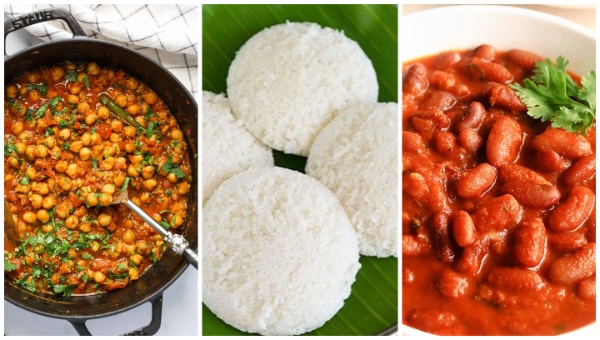Rajma, Idli among Top 25 global dishes causing the most damage to biodiversity: Study
Discover how your favourite dishes like Rajma and Idli contribute to biodiversity damage. Unveil the surprising findings and make informed food choices.
Unveiling the Culinary Impact: Rajma and Idli Among Top 25 Global Dishes Causing Biodiversity Damage
Our seemingly harmless culinary choices might be contributing to biodiversity damage, as revealed by a recent study assessing the biodiversity footprints of 151 popular dishes worldwide. The surprising revelation is that dishes like lechazo, a roast lamb recipe from Spain, and various beef and meat preparations from Brazil top the list. What stands out is the unexpected presence of vegetarian staples like Idli and rajma (kidney beans curry) among the top culprits.
Read more: Yogurt And Curd Is Not The Same! How?
The Biodiversity Ranking: According to the study led by Luis Roman Carrasco, an Associate Professor of Biological Sciences at the National University of Singapore, lechazo claims the dubious honour of causing the highest biodiversity damage, closely trailed by four beef and meat dishes consumed in Brazil. Intriguingly, Idli secures the sixth position, and Rajma follows closely at seventh. The unexpected inclusion of these vegetarian dishes raises questions about our assumptions regarding the environmental impact of our food choices.

Insights from the Study: Professor Carrasco sheds light on the findings, stating, “The large impacts of legumes and rice in India were a surprise, but when you think about it, it makes sense.” The biodiversity footprint in the study reflects the number of species that have been at least partially impacted to produce a particular dish. Carrasco further explains that this measure provides insight into how many species are being pushed closer to extinction due to our dietary preferences.

Assessing Ingredients Impact: The study delves into the impact of ingredients on the species richness and range of wild mammals, birds, and amphibians in croplands. Surprisingly, dishes containing meat showcase a higher biodiversity footprint than their vegetarian and vegan counterparts. This challenges the assumption that plant-based diets are always more environmentally friendly.
Environmental Consciousness through Food Habits: Our food choices are often driven by taste, price, and health considerations. The study aims to make people more environmentally conscious by providing insights into how their food habits impact biodiversity. The hope is that individuals, armed with this knowledge, will tailor their dietary choices to minimize their environmental footprint.
Agriculture’s Role in Biodiversity Damage: The expansion of agriculture has led to severe damage to biodiversity, primarily through habitat loss. Non-vegetarian dishes also contribute to negative impacts on livestock rearing. In the case of India, one of the top producers of legumes, rice, and legumes are cultivated in areas that were traditionally biodiversity hotspots, leading to biodiversity damage. However, the study notes that despite this, India has managed to coexist with biodiversity due to a significant portion of the population adopting a vegetarian lifestyle.
Read more: Can You Use Shampoo as Body Wash? Dermatologists Weigh In
India’s Unique Scenario: India’s inclusion in the study highlights its unique position in balancing food production and biodiversity conservation. Despite being a major producer of legumes and rice, the country has maintained a delicate equilibrium due to a large proportion of its population adhering to a vegetarian diet. This indicates that dietary choices, even within the vegetarian category, can have varying impacts on biodiversity.
We’re now on WhatsApp. Click to join.
Conclusion: As we continue to enjoy the diverse and delicious offerings of global cuisine, it becomes imperative to be mindful of the environmental consequences of our food choices. The surprising presence of dishes like Idli and rajma among the top contributors to biodiversity damage underscores the need for a nuanced understanding of the environmental impact of various dietary preferences. By fostering awareness and making informed choices, we can strive to minimize our ecological footprint while savouring the rich tapestry of global culinary delights.
Like this post?
Register at One World News to never miss out on videos, celeb interviews, and best reads.








